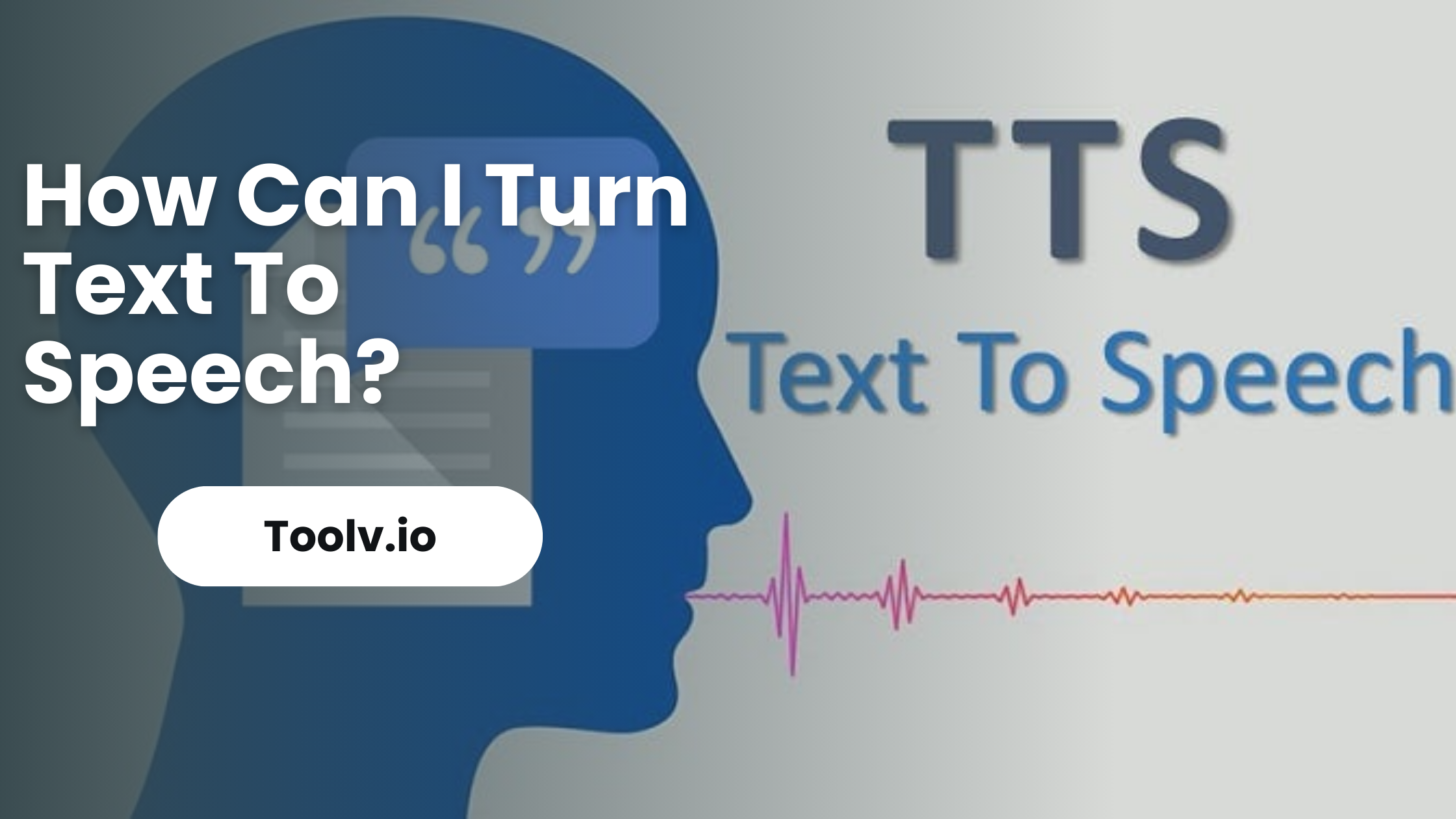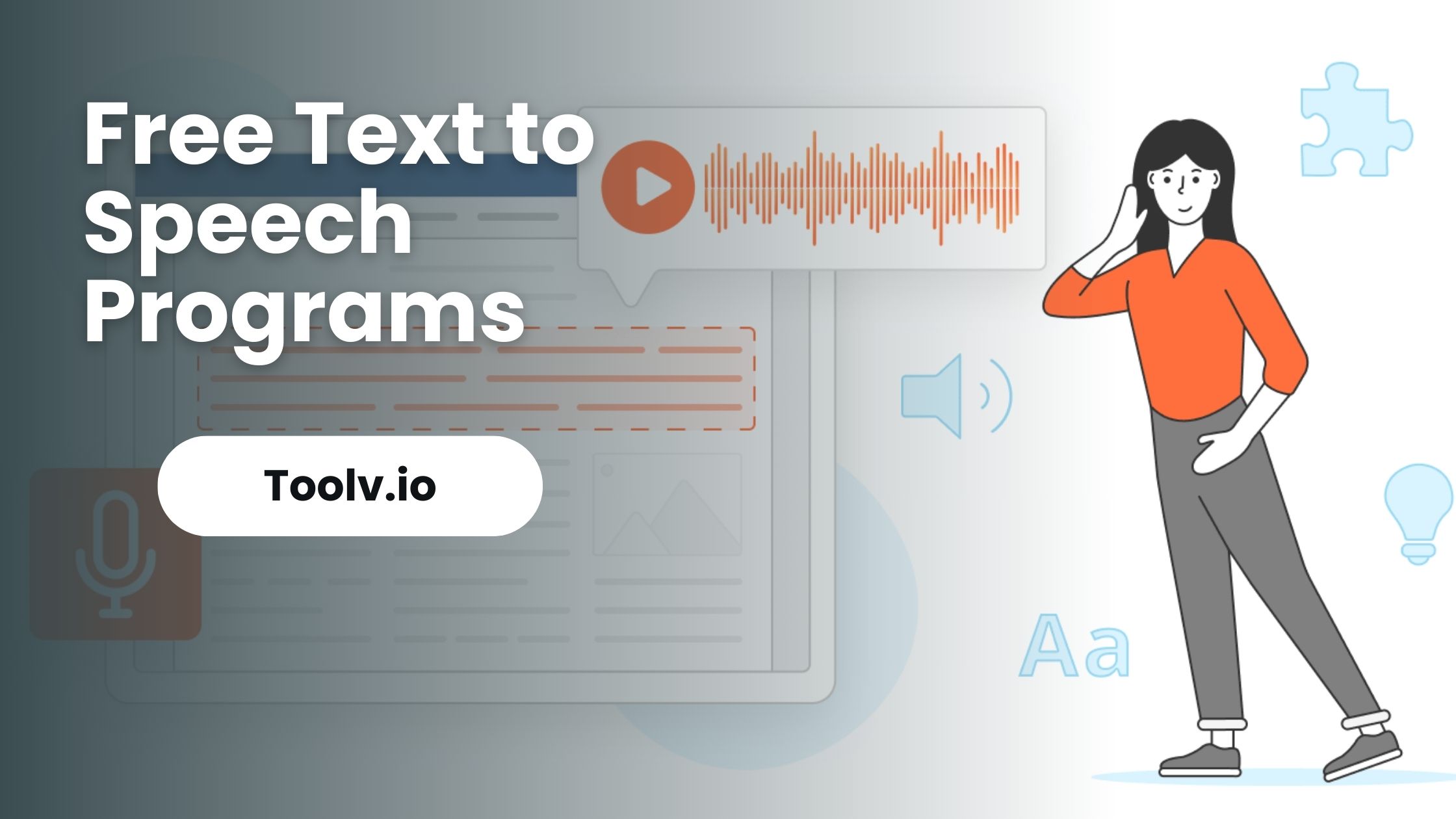Text to Speech for Listening to Research Papers
In today’s fast-paced world, researchers and students often find themselves overwhelmed with the sheer volume of academic papers they need to read. Whether you’re a student struggling to keep up with your reading list or a professional researcher managing numerous publications, finding an efficient way to consume this information is crucial. This is where text to speech technology comes in, offering a convenient solution to listen to research papers instead of reading them.
Text to speech tools transform written text into natural-sounding audio, allowing users to absorb information while multitasking or taking breaks from screen time. Using text to speech free applications can help democratize access to knowledge by making research more accessible to people with visual impairments or reading difficulties. With the advancement of AI, ai text to speech systems now provide high-quality, human-like voices, making the listening experience pleasant and engaging.
By leveraging these tools, academic reading becomes more flexible and efficient. You can listen to papers during your commute, workout, or even while doing household chores. This blog explores the benefits, latest trends, and practical uses of text to speech online technology specifically for academic research. You will also learn how to choose the best text to speech generator to fit your needs.
Why Use Text to Speech for Research Papers?
Academic papers are often dense, technical, and time-consuming to read. Listening to these papers through a text to voice generator brings several advantages:
First, it allows for better time management. When you can listen to research content while performing other tasks, you optimize your day without compromising learning. It turns idle moments into productive study time.
Second, hearing information spoken aloud helps improve comprehension and retention. Listening engages different parts of your brain compared to reading, which can make understanding complex theories or data easier.
Third, it reduces eye strain, especially for those who spend long hours in front of screens. Using text to audio free tools provides a break from visual overload, enhancing overall focus.
Moreover, these tools support inclusivity by assisting individuals with dyslexia or other reading challenges to access academic materials comfortably. This expands opportunities for everyone to engage with scholarly work.
In the context of education and research, free online text to speech solutions are a cost-effective way to integrate technology without expensive software or equipment.
How AI Has Improved Text to Speech Voices
The introduction of AI in text to speech voices has revolutionized how natural and clear the audio output sounds. Earlier versions of speech synthesis were robotic and hard to listen to for extended periods. Today, AI models produce nuanced tones, pauses, and inflections that mimic human speech.
This advancement benefits users listening to academic papers because it maintains interest and aids understanding. You are less likely to feel fatigued or distracted when the voice sounds engaging.
AI-powered text to speech generator tools also support multiple languages, accents, and customizable voice options. This flexibility allows users worldwide to access research papers in a way that suits their preferences.
By selecting voices that are easy to follow and well-paced, researchers can make their study sessions more productive and enjoyable. Some platforms even offer speed controls to listen faster or slower depending on your comfort.
Using Text to Speech Online Tools: Convenience and Accessibility
Many platforms offer text to speech online tools that require no software installation, making them easily accessible from any device. Whether on a laptop, tablet, or smartphone, you can convert research papers into audio instantly.
Online tools often provide user-friendly interfaces where you can upload documents or paste text directly. They then process the text and generate spoken versions within seconds. This simplicity is ideal for busy researchers who need quick solutions.
Additionally, these tools often have a free tier allowing users to try them without financial commitment. This is great for students or academics working on tight budgets.
For those seeking more advanced features, premium versions may offer higher voice quality, more voice choices, and longer text limits.
The rise of online free online text to speech platforms shows a trend toward making information consumption as flexible as possible. They help remove barriers related to time, location, or format.
How to Choose the Best Text to Speech Generator for Research Papers
Not all text to speech generators are created equal, especially when it comes to handling dense academic content. Here are some points to consider when selecting a tool for listening to research papers:
The clarity of voice is paramount. You want a tool that offers crisp, clear speech with natural intonation. The goal is to avoid monotone or robotic sounds that can reduce focus.
Look for support of common file types like PDF, DOCX, or TXT since most academic papers come in these formats. Tools that allow you to upload directly save time.
Check if the platform provides adjustable reading speeds. Some papers are easier to understand at slower speeds, while others you may want to skim faster.
Consider if the tool supports offline listening. This feature is handy when internet access is limited.
Integration with note-taking or referencing software can enhance productivity by allowing you to highlight important points while listening.
Lastly, it’s worth testing tools that have a free trial or free usage tier to find what matches your preferences before committing.
Enhancing Research Efficiency with Text to Speech Technology
Integrating text to speech tools into your research routine can dramatically increase productivity. Instead of spending hours hunched over your screen, you can absorb papers while exercising or commuting.
Listening helps consolidate information differently, reinforcing learning. You might find new insights or connections that reading alone missed.
Some researchers use this technology to draft summaries or paraphrase content. Tools like AI content detectors or paraphrasing tools can complement text to speech by ensuring content originality and clarity. For example, platforms such as AI Content Detector and Paraphrasing Tool help maintain the integrity of your research outputs when repurposing ideas.
Furthermore, text to speech free software makes it affordable to implement these techniques without additional costs.
The Future of Text to Speech for Academic Research
As AI continues to evolve, the capabilities of ai text to speech systems will only improve. We can expect voices that adapt dynamically to the content type, emphasizing key points or clarifying technical jargon automatically.
Interactive features might emerge, enabling users to pause, ask questions, or get definitions in real-time while listening to papers.
Virtual assistants could integrate with text to speech online tools to provide personalized research briefings tailored to individual interests.
The ongoing trend of open-access publications combined with easy-to-use listening tools will make research more accessible globally, breaking down educational barriers.
Keeping up with these developments can position you at the forefront of academic efficiency and innovation.
How Toolv’s Text to Speech Can Help You Listen to Research Papers
If you want a reliable, easy-to-use platform for converting your research papers to audio, Toolv’s Text to Speech is an excellent choice. It offers a clean interface, a range of natural voices, and supports various file formats commonly used for academic documents.
This tool provides fast conversion and smooth playback, making it easy to follow complex texts without distraction. Whether you need text to speech free features or more advanced voice options, Toolv adapts to your requirements.
Using this platform can transform how you engage with research papers, saving time and reducing eye fatigue while improving comprehension.
Practical Tips for Using Text to Speech in Your Research Workflow
To get the most out of text to speech voices for research papers, it helps to develop a workflow. Start by selecting key papers you want to listen to and convert them using a trusted tool.
Use headphones for better sound quality and fewer interruptions.
Experiment with playback speeds to find what suits your concentration and comprehension best.
Take notes while listening to reinforce memory and prepare for discussions or writing.
Combine listening with reading if possible — this dual approach deepens understanding.
Use the technology to review drafts or presentations aloud before finalizing them to catch errors or awkward phrasing.
By making these habits routine, you can make text to speech online tools a powerful asset in your academic life.
Common Misconceptions about Text to Speech for Academic Use
Some people believe that listening to research papers is less effective than reading them. However, studies show that auditory learning complements visual reading and can enhance retention.
Another misconception is that text to speech free tools produce unnatural voices that hinder comprehension. While this was true in the past, modern AI-driven platforms now provide lifelike voices that are pleasant to listen to for extended periods.
Some think that these tools are only for people with disabilities, but in reality, they serve a broad audience looking to multitask or reduce screen time.
Lastly, the belief that all text to speech generators are complicated to use is incorrect. Many online platforms are designed with simplicity in mind, requiring no technical skills.
FAQs
What is the best way to listen to research papers?
Using a reliable text to speech tool with natural voice options helps convert papers into audio for easy listening anytime.
Are free text to speech tools good for academic papers?
Yes, many free online text to speech platforms offer quality voices that work well for listening to research content.
Can text to speech improve comprehension of research papers?
Listening to papers activates different learning pathways, which can enhance understanding and retention.
Do text to speech generators support PDF files?
Many tools support common formats like PDFs, making it simple to upload and listen to research papers directly.
Is AI text to speech better than older versions?
AI-powered text to speech provides more natural, clear, and engaging voices compared to older robotic systems.
Final Word
Embracing text to speech technology for listening to research papers is more than just a convenience—it’s a game changer for anyone involved in academic work. As this technology continues to improve, it opens up new possibilities for learning, accessibility, and productivity. Whether you’re a student, educator, or professional researcher, integrating a high-quality text to speech generator into your study routine can transform how you engage with complex information. Start exploring these tools today and unlock a more efficient, flexible way to stay informed and inspired.



